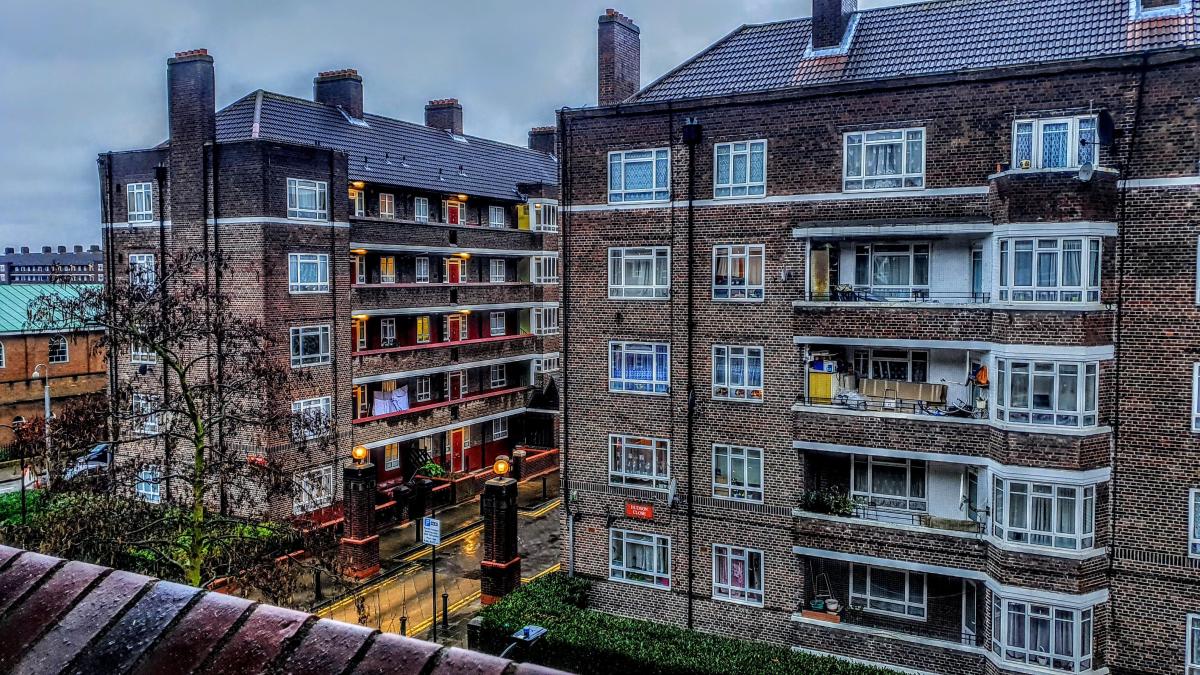Case study: Heat decarbonisation in White City, Hammersmith and Fulham

Delivering a clean heat network for White City in the Hammersmith and Fulham Council area
What is the project?
Project stage: Plan and Procure
A clean heat network for White City in the Hammersmith and Fulham Council area is being developed, aligned to RIBA Stage 2 feasibility and including potential connections to local large-scale consumers.
White City is one of the largest housing estates in west London and is currently heated by individual gas appliances. This presents a retrofit opportunity focussing on the existing archetype that is repeatable across London on similar properties and can also reduce fuel poverty. The project aims to minimise significant cost increases for approximately 10,393 residents in White City by achieving a balance between fabric and technology enhancements.
Five of the eight Lower Super Output Areas (LSOAs) in the White City ward are ranked in the 20% most deprived nationally. It is also one of the most densely populated wards. The Office for National Statistics (ONS) has estimated that 14% of households in the ward are in fuel poverty.
The projected carbon savings of 1,975 tCO₂ per annum from a clean heat network will support the reduction of Hammersmith and Fulham’s total emissions. White City currently represents 10% of their emissions.
There are additional opportunities for commercialisation including the Phoenix Fitness Centre and Janet Adegoke Swimming Pool, Hammersmith Hospital, White City Living, Television Centre, Imperial College White City North and South campuses and Old Oak and Park Royal Development Corporation (OPDC).
“The opportunity for a heat network in White City was first identified in our Cross Borough Energy Masterplan in 2023. Thanks to the funding and expert support from the Zero Carbon Accelerator, we’re now completing a detailed feasibility study, unlocking the full scale of the opportunity. We’re excited to move forward toward delivery, bringing cleaner, greener heat to thousands of residents and making real progress on our journey to net zero.”
Meghan Kingsley-Walsh, Heat Decarbonisation Lead at Hammersmith and Fulham Council
What support is being offered?
Various partners in the Zero Carbon Accelerator Alliance are enabling this project delivery through support at the planning and procurement stages:
- Mott MacDonald are the Technical Programme Manager and offer technical oversight. They also provide stakeholder subject matter expertise and engage developers such as the NHS.
- COWI are working as heat networks specialists and are undertaking the desk study (gathering and analysing existing information) and additional heat network modelling and design.
- Energiesprong UK and Pollard Thomas Edwards are undertaking retrofit specialisation and desk study.
What technology is involved?
- Typology assessment and data modelling will be applied from previous learnings.
- Potential connections to wider heat networks through strategic alignment will be explored.
What building types are included?
Social housing, NHS estate and local White City leisure, recreational and educational facilities.
“Working with Hammersmith and Fulham is a fantastic opportunity to work on a project that both meets the decarbonisation needs of the city while also considering the ‘just transition’. Fuel poverty is a key consideration within social housing, so it’s important to ensure this project delivers clean and affordable heating for tenants. Hopefully the findings can be rolled out across other future projects.”
Sam Shaw, Senior Consultant Net Zero Advisory at Mott MacDonald
How does this project align with the Zero Carbon Accelerator’s principles?
The White City Heat Network project is considered ‘critical’ to achieve the London Borough of Hammersmith and Fulham’s net zero targets for 2030.
Through developing an area-wide feasibility study and assessing data, the findings can feed into future heat networks in the area, with the potential for early-stage engagement with other stakeholders to share benefits. There are potential links to other Zero Carbon Accelerator projects which enables knowledge transfer from previous projects for future heat networks.
We will assess the options to deliver heat requirements as a central heat network or a local block heat network in order to determine the best location and strategy for the energy centres. By examining the viability of geothermal, water and air source in the area, these sources become repeatable to other councils.
What Knowledge Hub resources are we creating?
To inspire similar projects, we will create outcomes, tools, templates and datasets and share them with other councils and developers via our Knowledge Hub.
We will compile a dataset of fabric improvements to archetypes that will link minimum Coefficient of Performances (COPs) to scale retrofit improvements. This will enable other council areas with similar archetypes to create a heat network like this.
If your project has similar archetypes to this, contact us directly to see how you can benefit from these learnings.
What social impact commitments are being delivered?
Social impact and economic modelling will be carried out as part of the work packages for this project. Working alongside Hammersmith and Fulham, we will select the most appropriate systems to take further. A social impact analysis will be carried out covering:
- Reduced pollution from gas use and health benefits of zone development.
- An equalities impact assessment, modelling likely impacts on energy bills, health risks of residential over and under-heating (with reference to economic modelling and business model optioneering) and risks from resident adaptation to new technology, resident/consumer voice, participation and protection in the energy system (with reference to forthcoming regulations), impacts of potential disruption from construction works, benefits from the provision of cooling (if cooling part of proposed scheme).
- Fabric improvements comparison of total energy consumption versus counterfactual. Specifically, when assessing fabric improvements the counterfactual (air source heat pumps) will be considered both with and without fabric upgrades to understand the full range of the options being assessed.
- Assessment of the space loss and implications to space use to within and around White City from potential size and locations of energy centres.
What’s the project timeline?
The project runs from November 2024 until October 2025.